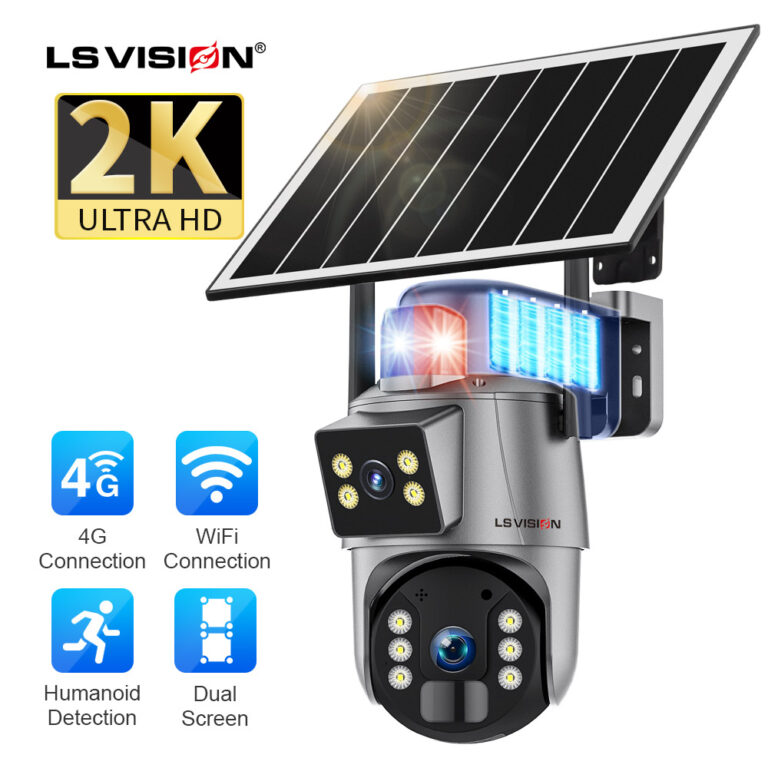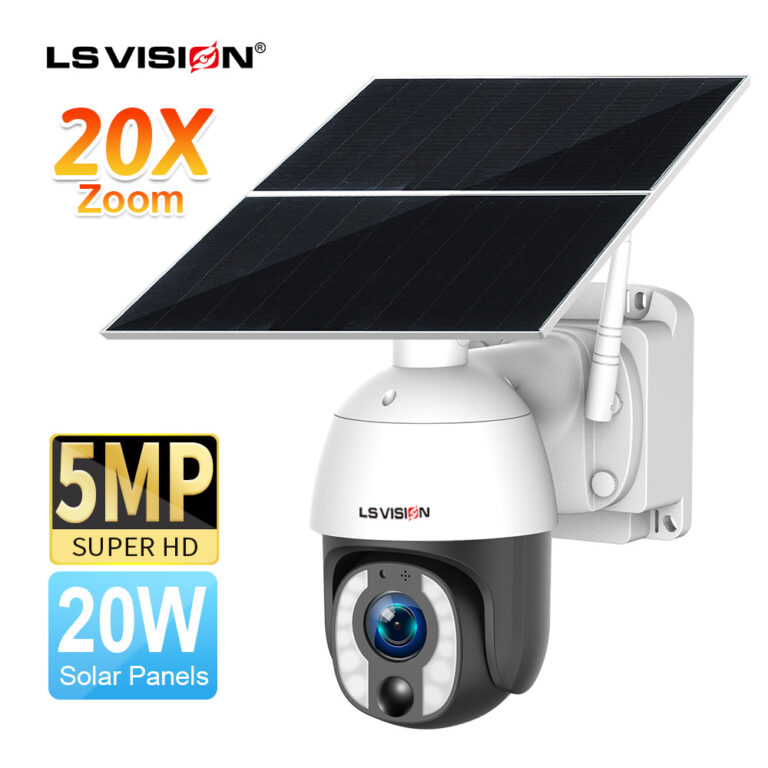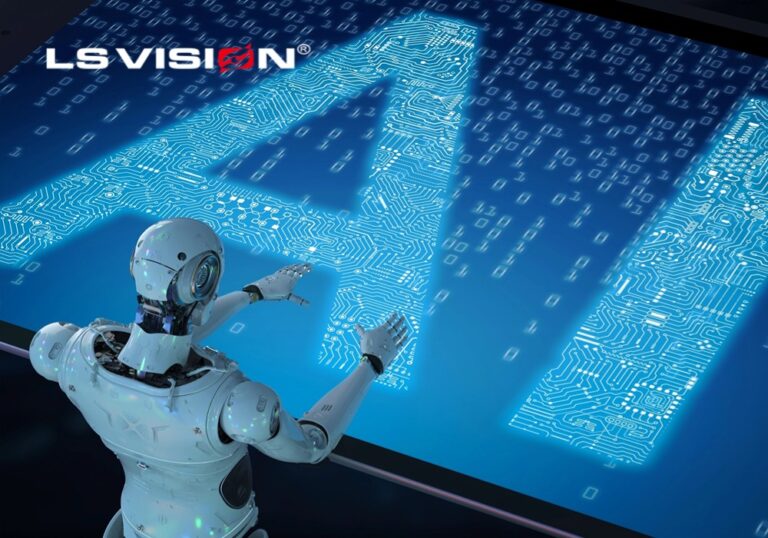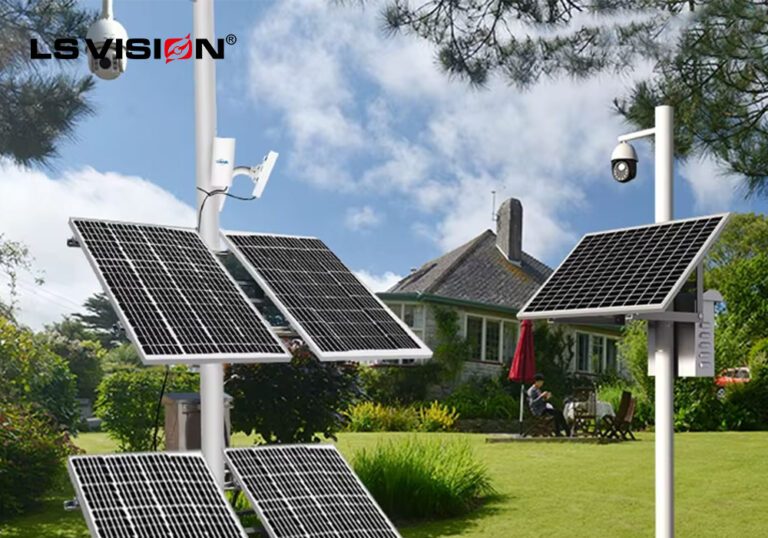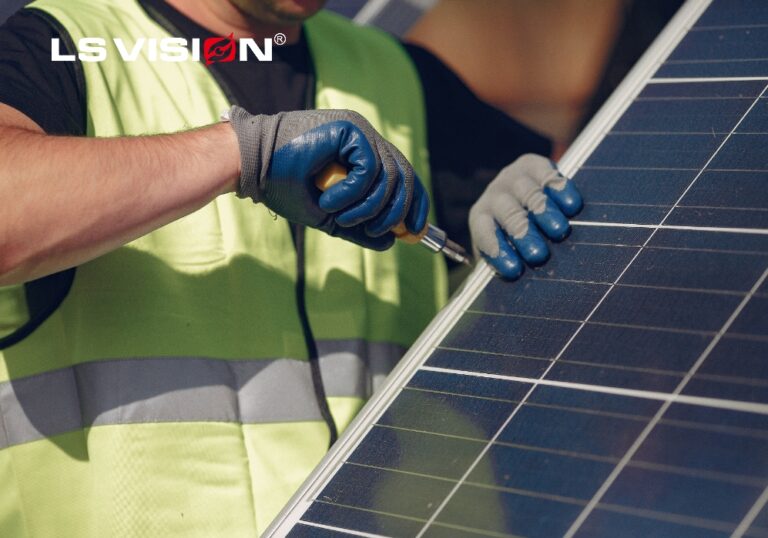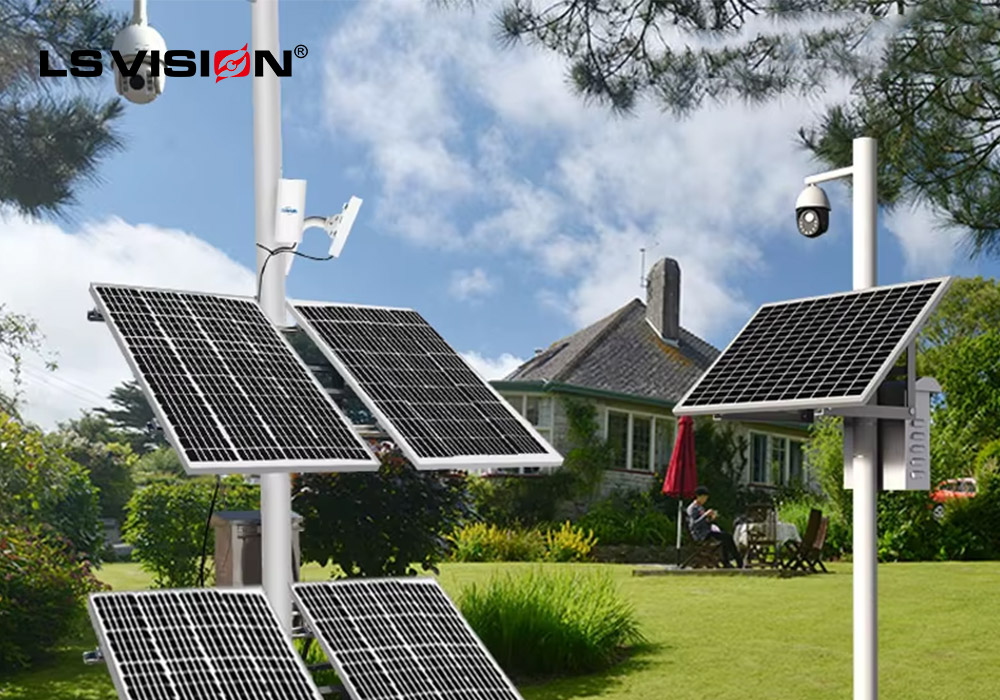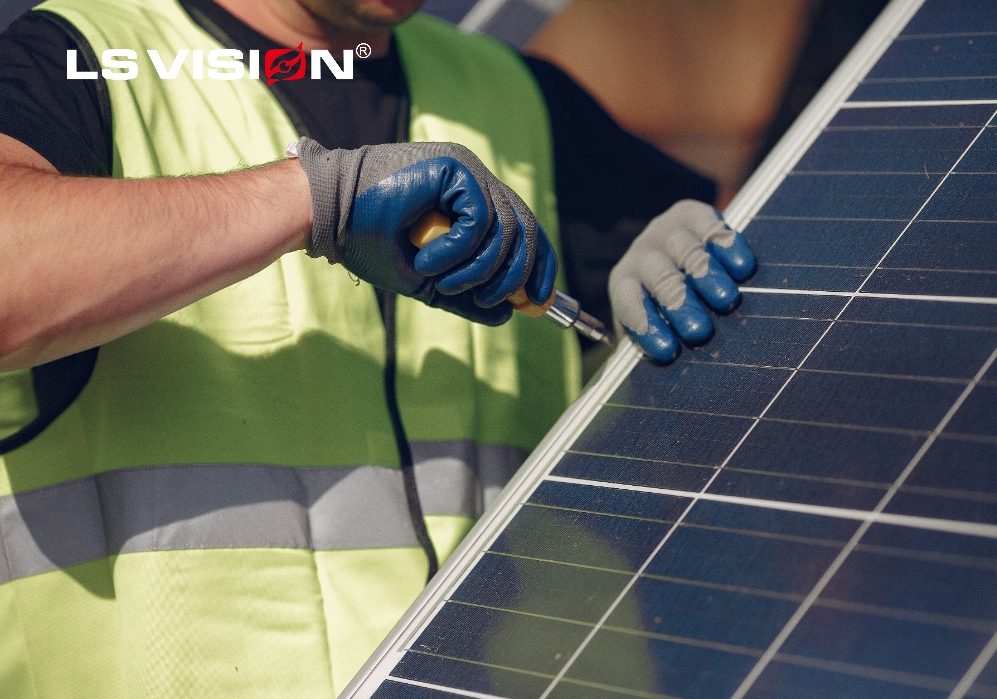The Nvidia GPU Technology Conference (GTC) 2025 has showcased revolutionary advancements in artificial intelligence (AI) that will transform industries, particularly in the world of solar-powered security solutions. Among the key highlights at the event were innovations in AI chips and systems that will have a direct impact on the performance and efficiency of AI security camera systems. These developments offer new possibilities for enhancing the capabilities of solar cameras, making them smarter, faster, and more reliable than ever before.
Nvidia’s Groundbreaking AI Innovations at GTC 2025
At Nvidia’s GTC 2025 event, CEO Jensen Huang took the stage to highlight some of the company’s most cutting-edge developments. Among the most notable announcements was the introduction of the Blackwell Ultra GB300 AI chip. This chip is designed to handle complex AI workloads more efficiently, enabling faster processing speeds and enhanced capabilities. The Blackwell Ultra chip boasts 50% more memory, allowing it to process vast amounts of data in real-time. This is a crucial development for AI security camera systems, as it will make them faster, more intelligent, and capable of analyzing footage with greater accuracy.
Table of Contents
ToggleThe Blackwell Ultra chip’s ability to analyze complex data quickly makes it ideal for use in surveillance and security applications. As a result, AI security camera systems will be able to provide more accurate and reliable results, ensuring that security threats are detected as soon as they occur.
Nvidia also introduced plans for even more powerful AI chips, such as the Rubin AI chip, which will be released in late 2026. This chip will be followed by Rubin Ultra in 2027, promising even greater advancements in AI technology. These future chips are expected to further accelerate AI applications across industries, including solar-powered surveillance systems.
With the upcoming Rubin series, Nvidia is continuing to push the limits of what’s possible with AI. As these new chips make their way into AI security camera systems, we can expect even more sophisticated features, such as predictive analytics, enhanced image recognition, and seamless integration with other smart devices.
The Rise of Physical AI in Solar Security
One of the most fascinating trends that emerged at GTC 2025 was the concept of “physical AI.” This refers to AI systems that not only understand the world around them but also interact with it in real-time. For solar-powered AI security camera systems, this is a game-changer.
With physical AI, cameras can do more than just capture footage—they can analyze and respond to events as they happen. For example, AI systems can detect unusual movements, identify specific objects, or even recognize faces, allowing the cameras to act on the information they gather immediately. This makes AI security camera systems much more responsive and intelligent, capable of addressing potential security threats before they escalate.
The integration of physical AI into solar-powered cameras allows them to function as both a security tool and a proactive surveillance system. As these systems become smarter and more efficient, they will be able to make decisions based on what they “see” and “hear” in real-time. This makes them ideal for high-security environments where quick response times are essential.
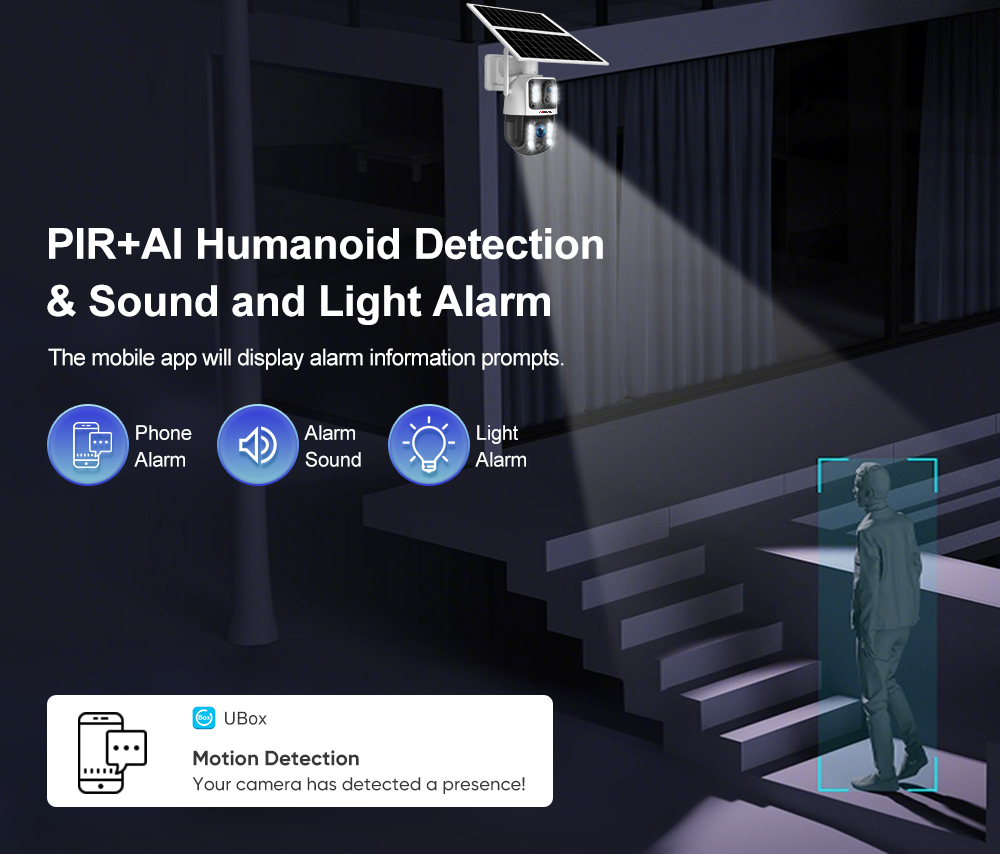
How AI is Enhancing Solar-Powered Security
The fusion of AI and solar technology is changing the way we think about security. AI security camera systems that incorporate solar energy are both environmentally friendly and highly efficient. These systems use solar panels to generate power, reducing their reliance on traditional power sources and lowering electricity costs.
By integrating AI, solar-powered cameras can now process data more quickly and accurately. For instance, AI-driven cameras can analyze footage in real-time, identifying potential security threats and sending immediate alerts to users. This feature makes solar-powered AI security camera systems more reliable and proactive than traditional cameras, which often require manual review of footage.
AI also allows solar cameras to function more autonomously, with the ability to learn and adapt over time. For example, AI cameras can differentiate between humans, animals, or vehicles, reducing the number of false alarms and improving overall security. With the advancements introduced at GTC 2025, these features will only continue to improve, making AI security camera systems an essential tool for modern surveillance.
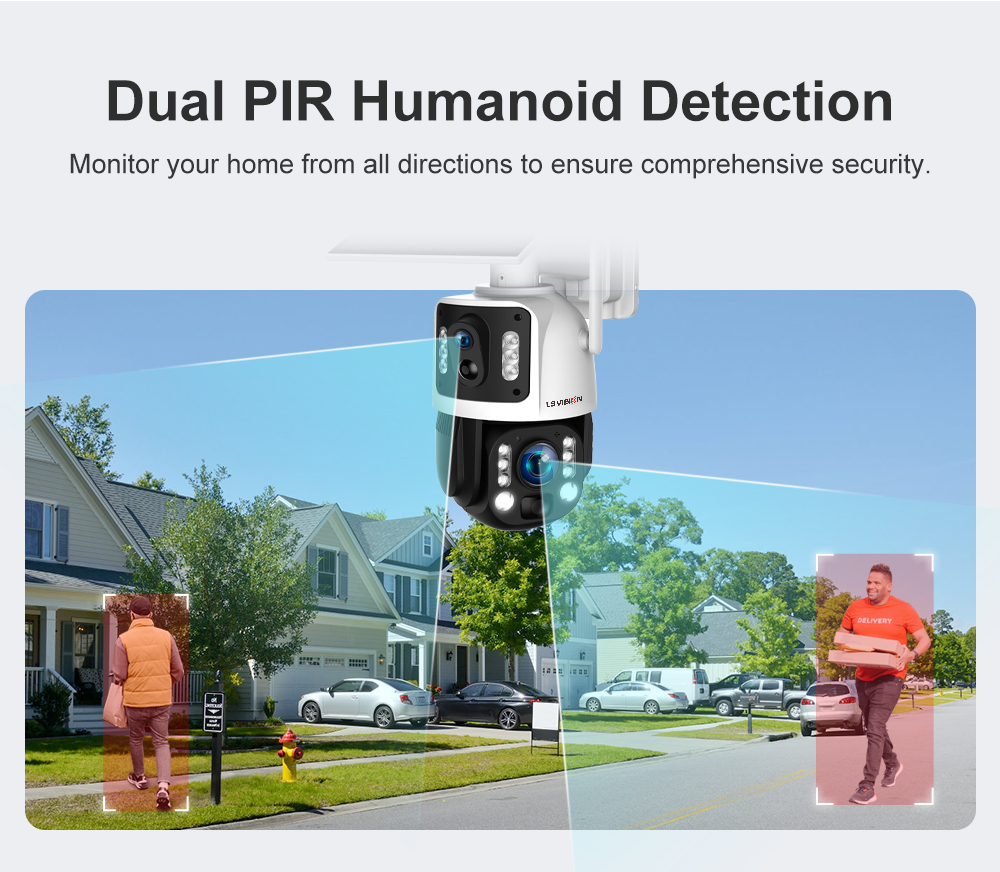
Why Solar-Powered AI Security Cameras Are the Future
The future of security is undoubtedly in AI-powered solar cameras. These systems combine the best of both worlds—renewable energy and cutting-edge AI technology—to provide a solution that is both environmentally friendly and highly effective. Here are some of the key advantages of AI security camera systems:
Sustainability: Solar-powered cameras reduce the environmental impact of traditional security systems by using renewable energy to power their operations.
Energy Efficiency: AI technology allows solar cameras to perform complex tasks without draining excessive power, ensuring that they remain energy-efficient.
Enhanced Security: AI systems can detect threats in real-time, analyze footage more accurately, and send instant alerts to users, making these cameras more responsive and reliable.
Cost-Effectiveness: Solar-powered AI cameras lower energy costs, while their autonomous capabilities reduce the need for human intervention, saving on labor costs.

The Future of AI-Enhanced Solar Security
Looking ahead, the potential for AI security camera systems in the solar-powered surveillance market is immense. With the innovations presented at Nvidia’s GTC 2025, we can expect AI to play an even bigger role in the future of security. The integration of AI and solar technology will lead to smarter, more energy-efficient, and highly effective security systems that can be deployed in a wide range of environments.
As Nvidia continues to innovate with chips like the Blackwell Ultra and Rubin series, AI-powered solar cameras will become even more capable. They will not only provide better threat detection but also offer predictive insights, allowing security teams to act before incidents even occur.
LS VISION: At the Forefront of AI-Enhanced Solar Security
At LS VISION, we are proud to be part of the evolution of AI-powered solar security solutions. Our commitment to innovation and cutting-edge technology ensures that our AI security camera systems are some of the most reliable and efficient in the market.
We integrate the latest advancements in AI, such as those presented by Nvidia, into our products to provide our customers with the best security solutions available.
Conclusion
Nvidia’s advancements in AI, showcased at GTC 2025, are paving the way for the next generation of AI security camera systems. The integration of AI with solar technology will revolutionize the security industry, making surveillance smarter, faster, and more reliable than ever before. With the power of AI and solar energy, these systems are set to provide an unmatched level of protection while also being environmentally friendly and cost-effective.
As AI technology continues to evolve, the possibilities for solar-powered security cameras will only grow. At LS VISION, we are excited to be part of this transformation, providing our customers with AI security camera systems that offer both cutting-edge features and sustainability.
To learn more about our products or to get in touch with us, feel free to contact us via email by sales@lsvisionsolar.com or telephone by Phone: +86 13544211486! We’re here to help you find the best security solutions for your needs.

